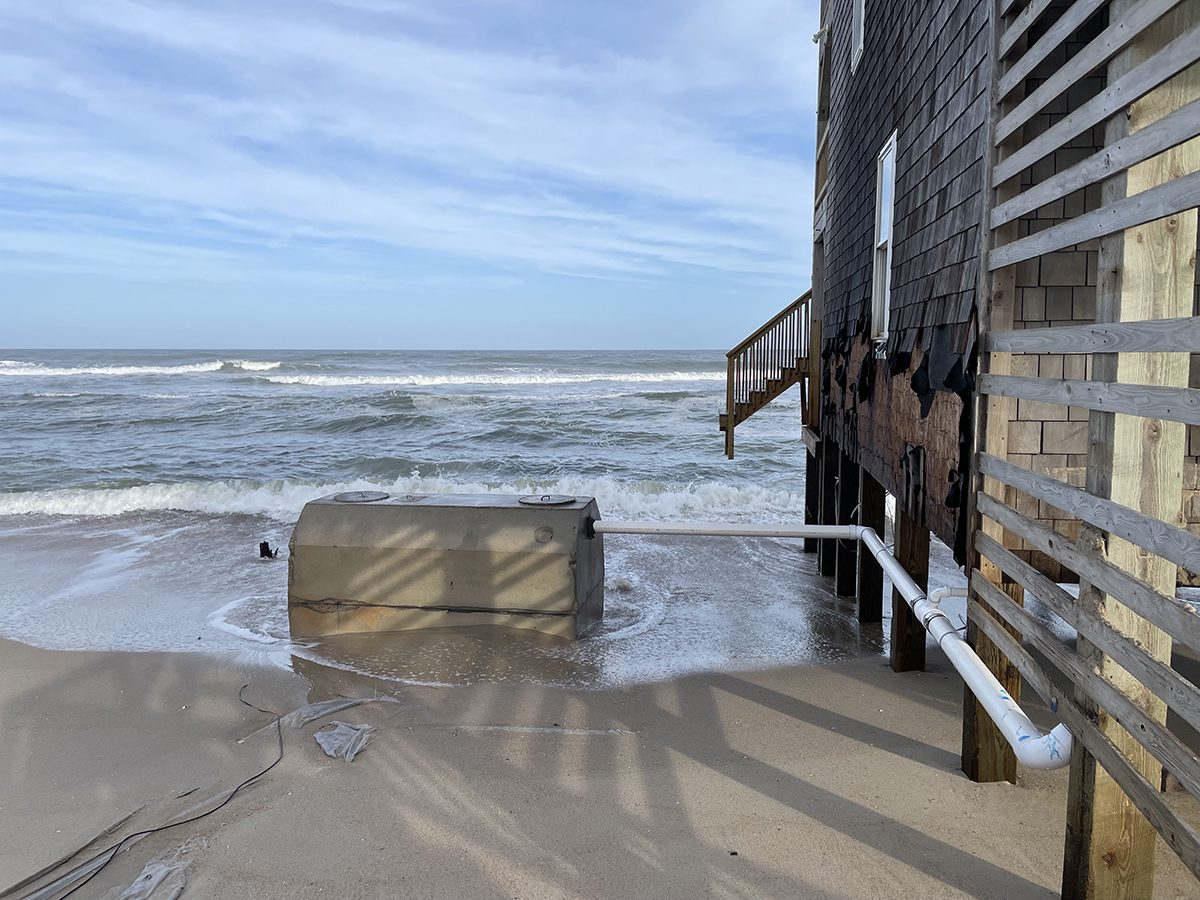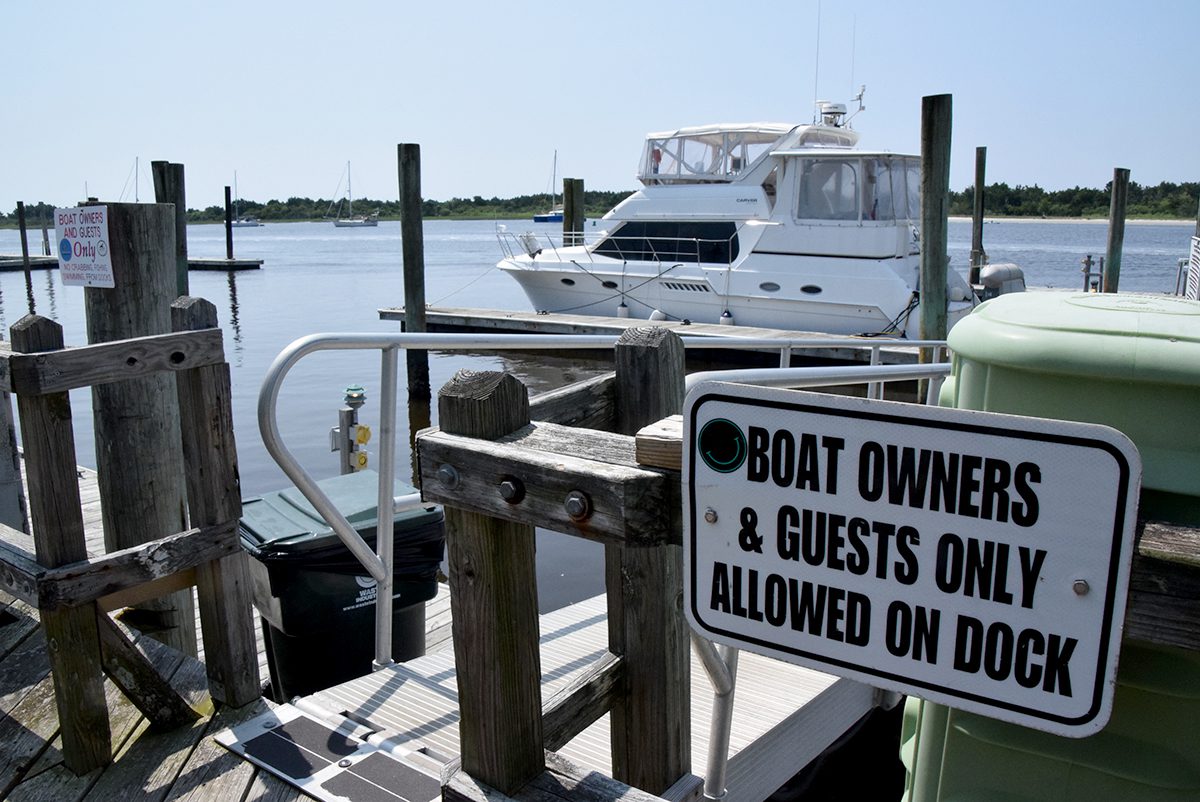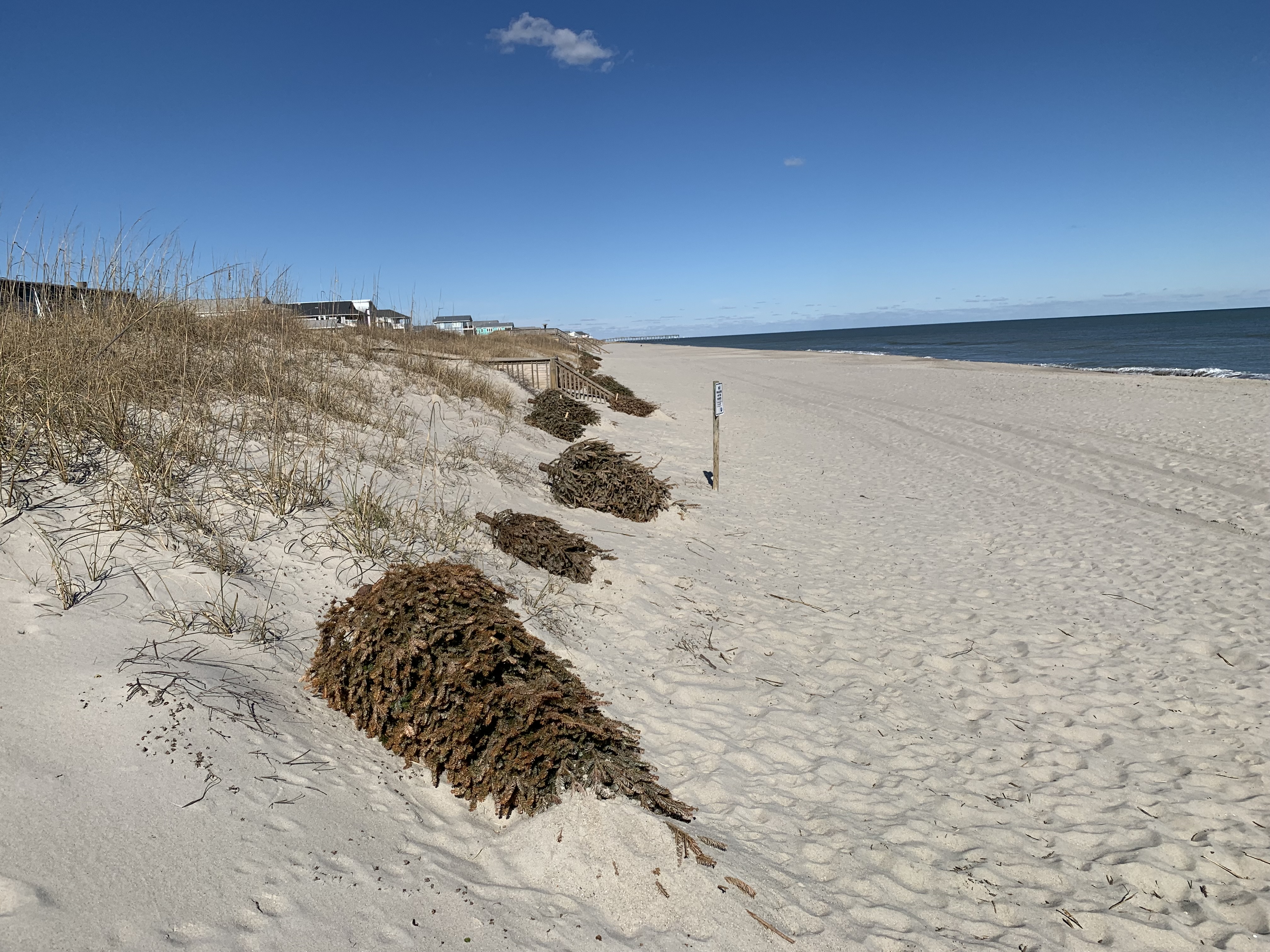
Two nonprofit environmental organizations are putting pressure on state and federal agencies to address the risks from the spewing septic systems of oceanfront Outer Banks houses that have collapsed or are at risk of falling into the ocean.
On behalf of the North Carolina Coastal Federation, which publishes Coastal Review, the Southern Environmental Law Center sent letters Thursday to the National Park Service at Cape Hatteras National Seashore and the North Carolina Department of Health and Human Services, urging them to address imminent threats to public health, welfare, and safety created by collapsing houses and abandoned septic tanks in Rodanthe village in Dare County.
Supporter Spotlight
In a press release, the organizations noted that the eroding shoreline and rising sea levels had left houses that once stood inland vulnerable on the wet sand beach and that, since 2020, five houses have collapsed on the Rodanthe oceanfront, “littering North Carolina’s surf and shoreline with dangerous debris including nails, drywall, chemicals, sewage, and other household materials that could contain toxic substances.”
They added that the collapses left behind septic tanks “that discharge concentrated human sewage onto the beach and into the ocean. And even before houses collapse, storms and high tides can leave their septic systems exposed, damaged, and leaking sewage onto the public beaches.”
The groups said that government agencies are responsible for eliminating the health hazards that they said threaten visitor safety and for protecting the national seashore for the use and enjoyment of future generations.
“Government officials at every level have a responsibility to prevent dangerous hazards for the safety of locals and tourists alike on North Carolina’s coast,” said Julie Youngman, senior attorney at the Southern Environmental Law Center. “The situation at Rodanthe is only getting worse with sea level rise and more intense storms from climate disruption.”
The letters urge the government agencies to address the exposed and abandoned septic tanks, public health threats posed by debris from past collapses, and the risk caused by houses identified as most likely to collapse next. The letters state that these risks, in the face of climate change, must be addressed before another house falls.
Supporter Spotlight
“Immediate action is required to remove exposed septic systems and threatened oceanfront structures to prevent further degradation of the coastal environment and protect the safety and welfare of the public,” said Alyson Flynn, coastal advocate and environmental economist at the North Carolina Coastal Federation. “We support and implore our decisionmakers to use their authority to clean up our oceanfront and ensure that coastal management measures protect our coast.”







